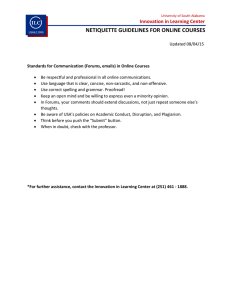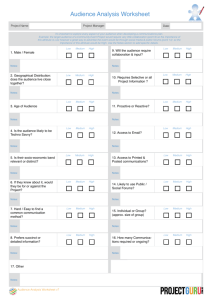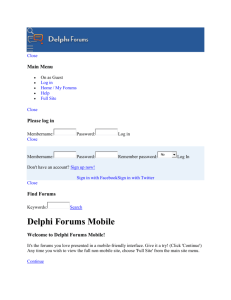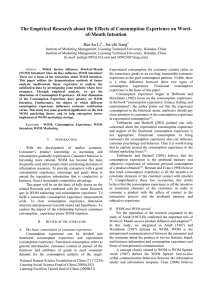Proceedings of 31st International Business Research Conference
advertisement
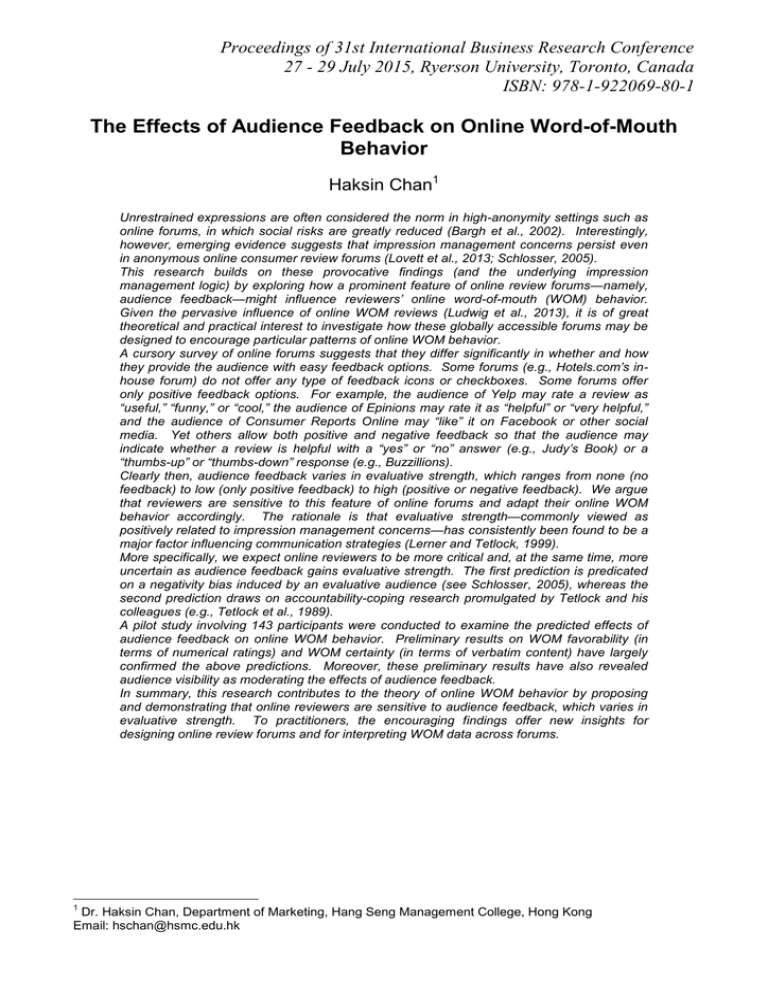
Proceedings of 31st International Business Research Conference 27 - 29 July 2015, Ryerson University, Toronto, Canada ISBN: 978-1-922069-80-1 The Effects of Audience Feedback on Online Word-of-Mouth Behavior Haksin Chan1 Unrestrained expressions are often considered the norm in high-anonymity settings such as online forums, in which social risks are greatly reduced (Bargh et al., 2002). Interestingly, however, emerging evidence suggests that impression management concerns persist even in anonymous online consumer review forums (Lovett et al., 2013; Schlosser, 2005). This research builds on these provocative findings (and the underlying impression management logic) by exploring how a prominent feature of online review forums—namely, audience feedback—might influence reviewers’ online word-of-mouth (WOM) behavior. Given the pervasive influence of online WOM reviews (Ludwig et al., 2013), it is of great theoretical and practical interest to investigate how these globally accessible forums may be designed to encourage particular patterns of online WOM behavior. A cursory survey of online forums suggests that they differ significantly in whether and how they provide the audience with easy feedback options. Some forums (e.g., Hotels.com’s inhouse forum) do not offer any type of feedback icons or checkboxes. Some forums offer only positive feedback options. For example, the audience of Yelp may rate a review as “useful,” “funny,” or “cool,” the audience of Epinions may rate it as “helpful” or “very helpful,” and the audience of Consumer Reports Online may “like” it on Facebook or other social media. Yet others allow both positive and negative feedback so that the audience may indicate whether a review is helpful with a “yes” or “no” answer (e.g., Judy’s Book) or a “thumbs-up” or “thumbs-down” response (e.g., Buzzillions). Clearly then, audience feedback varies in evaluative strength, which ranges from none (no feedback) to low (only positive feedback) to high (positive or negative feedback). We argue that reviewers are sensitive to this feature of online forums and adapt their online WOM behavior accordingly. The rationale is that evaluative strength—commonly viewed as positively related to impression management concerns—has consistently been found to be a major factor influencing communication strategies (Lerner and Tetlock, 1999). More specifically, we expect online reviewers to be more critical and, at the same time, more uncertain as audience feedback gains evaluative strength. The first prediction is predicated on a negativity bias induced by an evaluative audience (see Schlosser, 2005), whereas the second prediction draws on accountability-coping research promulgated by Tetlock and his colleagues (e.g., Tetlock et al., 1989). A pilot study involving 143 participants were conducted to examine the predicted effects of audience feedback on online WOM behavior. Preliminary results on WOM favorability (in terms of numerical ratings) and WOM certainty (in terms of verbatim content) have largely confirmed the above predictions. Moreover, these preliminary results have also revealed audience visibility as moderating the effects of audience feedback. In summary, this research contributes to the theory of online WOM behavior by proposing and demonstrating that online reviewers are sensitive to audience feedback, which varies in evaluative strength. To practitioners, the encouraging findings offer new insights for designing online review forums and for interpreting WOM data across forums. 1 Dr. Haksin Chan, Department of Marketing, Hang Seng Management College, Hong Kong Email: hschan@hsmc.edu.hk
